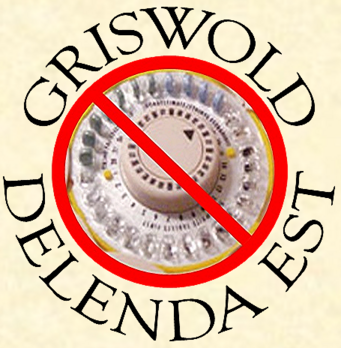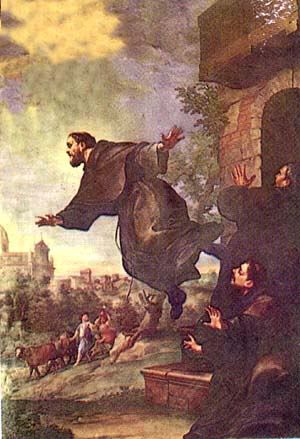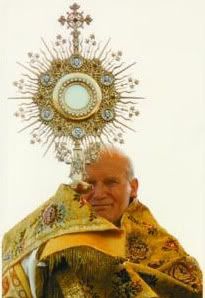IVA's Favorite Things About The Da Vinci Code
- Bad Latin -- nothing says "I have no clue what I'm doing" like not conjugating sum properly.
- Uh, did you mean "Gallileo"? Newton was never targeted by the Holy Office, and his works were never placed on the Index. For starters, he lived in a Protestant country without a hiearchy, and so was in no position to be "persecuted" by the Church. He got in a kerfuffle or two with James II over policy at the English universities, but that's the closest "Catholic oppression" came to him. The only work of Newtonian theory that did make the Index was Francesco Algarotti’s Newtonianism for Ladies, marked for its anticlerical philosophy and smutty content, not its astronomy. Newton's work actually encouraged the dropping of the prohibition against Copernicism.
- Alexander Pope was a) Catholic and b) did not "preside" nor eulagize at Newton's funeral.
- Ian McKellan's Real Ultimate Cripple Ninja Action. In the library, he goes from "I need these canes to stand up, I am so decrepid" to "watch me leap across the room and knock you senseless with my canes" instantaneously.
- Tom Hanks' gastrointestinal difficulties. He spent the entire movie looking like he was in acute stomach pain. He signs books and looks uncomfortable; looks at messages scrawled on priceless paintings and looks uncomfortable; he solves a mystery and hugs the "heroine" and looks uncomfortable; he goes back to the Louvre and kneels on that glass thing and looks even more uncomfortable. The food on the set must have been really bad.
- "I need a library -- fast!" Wow. All your bad lines are belong to Ron Howard.
- "A bishop of my order." Everyone in the movie calls His Grace What's His Name "a bishop" of Opus Dei. Opus Dei only has ONE bishop -- it's a world-wide diocese (more or less), with just a single bishop just like any other diocese. Also, his piping and buttons didn't seem to match his zuchetto (they gave every indication of being red, not purple.)
- Coherence. I just love the way everything in the movie made sense, was explained, and fit together. Like the Fibonacci sequence: they say "it's a fibonacci," then "it doesn't make any sense because it's out of order," "but it's still a sequence and we can somehow use it to open this vault." Or the fact that nobody ever says why Curator Guy draws a pentagram on himself. Or the way the Priory of Sion had kept all its records secret in the basement of some well-known church just by hanging a "private" sign in front of the stairway.
- The fact that St. Mary Magdalene's relics are, and have been for at least 700 years, kept in the French church of La Sainte-Baume. One of her teeth is in the Met -- it used to belong to JP Morgan.
- Bad Templar history. The movie insinuates is that the Templar treasure was still being kept in Jerusalem at the time of the dissolution -- but the Holy Land had been lost entirely in 1303 with the loss of the island of Ruad off the Syrian coast. Also, the chronology of the trial and suppression is completely wrong. The Templars were not all arrested at once. The actions against them were begun by Philip IV of France, who issued a warrent for the arrest of their members in France on September 14, 1307. James of Molay, the Grand Master of the Order, had come to France on business (bringing with him the Order's treasury) shortly before. The trials and exeuctions spanned the next seven years, with around 120 members being executed over a period of months towards the end. The Pope, for his part, issued two bulls on the matter: Vox in excelso [22 March 1312], suppressing the Templar, and Ad providam [2 May 1312], giving the Templar's property to the Hospitallers. None of it went to the papacy, although roughly half of it wound up in the hands of laymen (rulers who misappropriated it or lawyers who adjudicated disputes over it). There was no Friday the 13th massacre -- James and the other chief officers were executed on 15 March 1314, suggesting some sinister connection with Julius Caesar more than with St. Mary Magdalene -- and many of the brethren, especially outside of France, either melted into the local villages, were acquitted of the charges brought against them, or simply served jail terms. Also, there is no record, either in the Templar's own documents or academic commentary on them, of any Templar search for secret relics or treasures. They were financed by a variety of highly ordinary economic activities (tax farming, banking, etc) and highly lucrative privileges in Europe, not by Indiana Jones-type adventures. Besides, National Treasure already established that the Templar became the Masons, and didn't say anything about a Priory of Sion.
- "That's what they want us to believe." Please. You cross a line by saying that from odd conspiracy theorist to foaming-at-the-mouth lunatic. They developed valium for the kind of person who says that. But then again, that's probably just what the doctors (and the Church, the government, the Cubans, and the space aliens all want you to believe).
- Tom Hanks' hallucinations. I don't know whose idea it was to portray the fact that the character has a photographic memory as a communal shroom trip, but it was a bad one.
- Silas. Is that a black habit? Why is a Benedictine running around, shooting people or no -- aren't you supposed to be cloistered, chief? Also, where in that simple, pocketless single garment you wear do you keep firearms and cell phones? And something tells me that car violates your vow of poverty.
- Languages. It's just so believable when characters shift seamlessly and without provocation from one language to the next. It's one thing to have everyone speak English and just pretend they're not. It's another to have subtitles and then, whoops, just forget for whole swathes.
- The rose -- it's obviously only a symbol of the Holy Grail, and not, say, a jillion other things in Western history, such as the house of Plantagenant. So a tiny wooden box with a rose on it obviously contains a Gnostic artifact, not Margaret of Anjou's ear rings.
- Being accosted by a large scary guy in the movie theater. We laughed a good deal, and despite the protestations of my lovely companion, I did not observe the world's best theater etiquette during the film. But immediately following the movie, a couple sitting in the row in front of us accosted us, the woman making some rather incoherent inquiries about why we laughed and saying that coming to a movie and laughing wasn't the best way to "impact people" (as if we were meteors) if we were Christians. Her very large male companion was less enigmatic -- he expressed his desire to "break [our] asses" and wanted to know if we were Baptist or Church of Christ. Whether they were expressing moral indignation at our reaction to the film or were simply perturbed at having their theater experience disturbed was not very clear. Given the man's stated desire to supplament his aggravated assault with battery, we did not ask for clarification. But we did decide that it was the only time we had ever been physically threated in a movie theater.
All in all, I wasn't too terribly shocked. I had heard all the "Jesus was married" shtick going in, and the rest was old hat. So you say Christ wasn't God. Well, that's an old heresy. You say that "human is divine" -- that's a slightly more absurd, but even older paganism. You call the Church the greatest oppressor in history and rattle off a list of fictitious charges about how Catholicism is the Only Bad Thing in the world. Well, that's an old heresy too. Could we at least get something new? Say the Pope is a martian, or that Jesus was a camel, or that God really said that we should all hop on our left foot and the Church has supressed the true path to happiness by not letting us know this. Be original. The stock heresies are so dull. But that is to be expected. As Chesterton reminds us, orthodoxy is the great adventure. That is why there will be Catholics long after all the records of Dan Brown's existence have turned to dust.
File Under: Art/Media, Catholic_Stuff








1 Comments:
You lied? Isn't there a commandment about that?
Post a Comment
<< Home